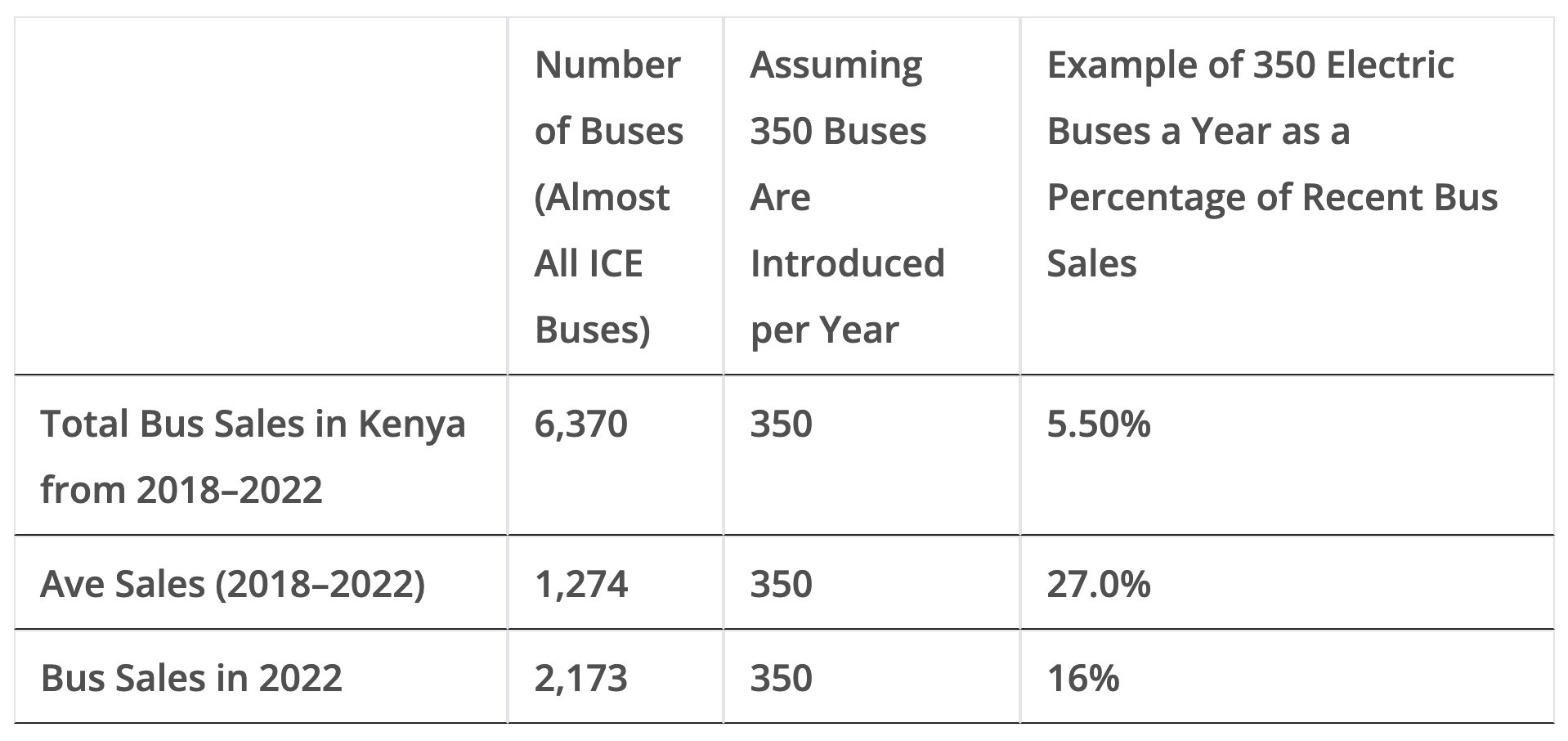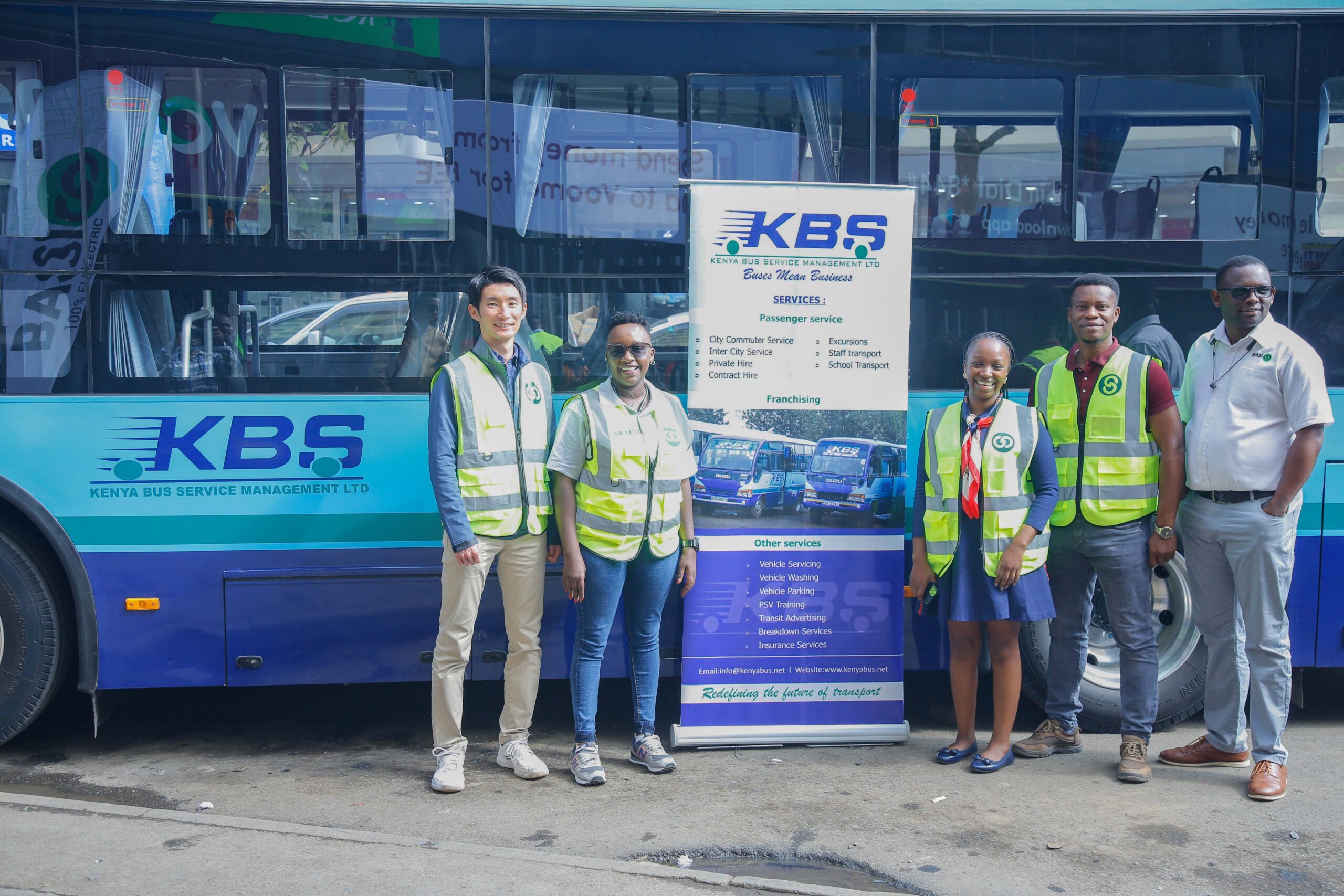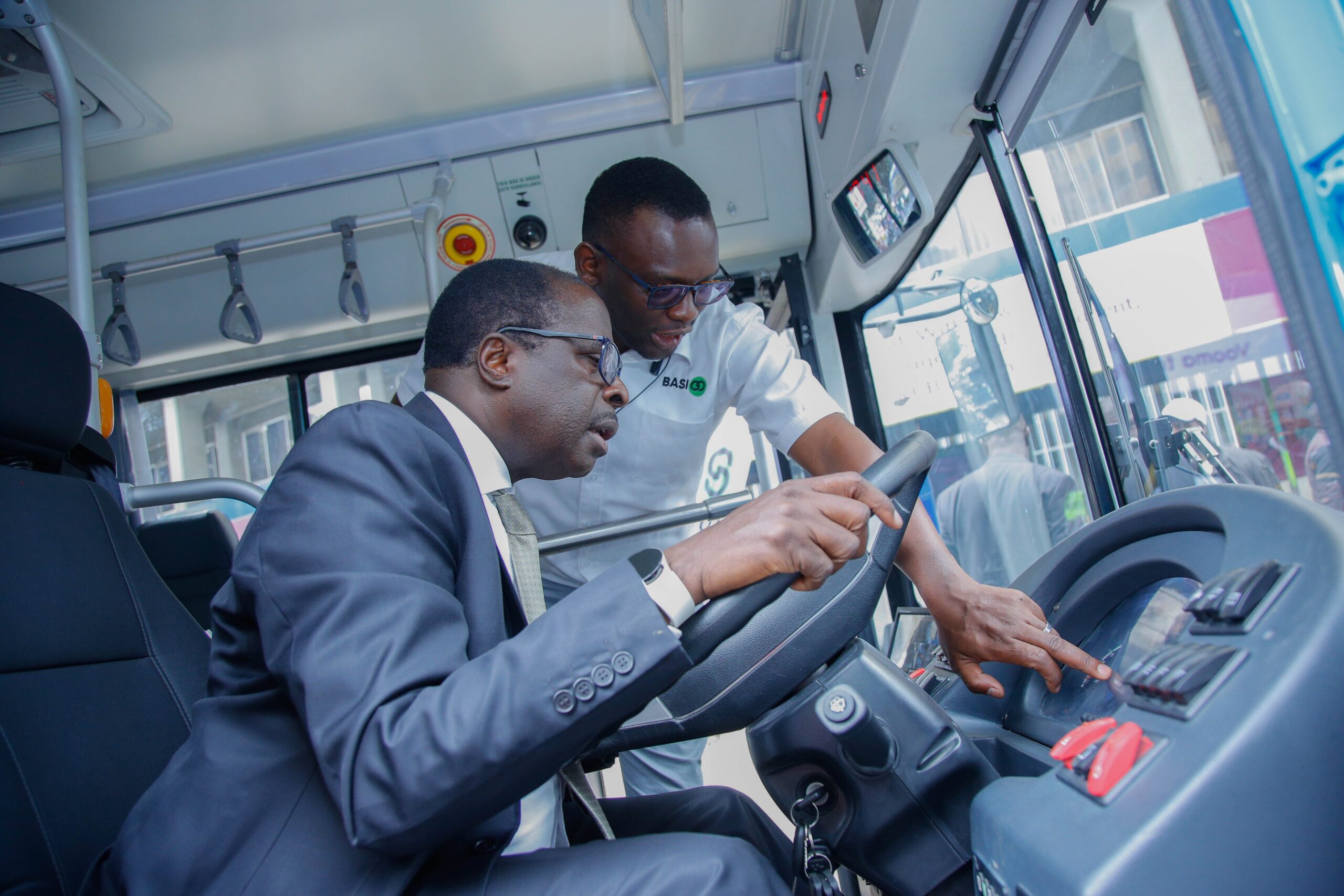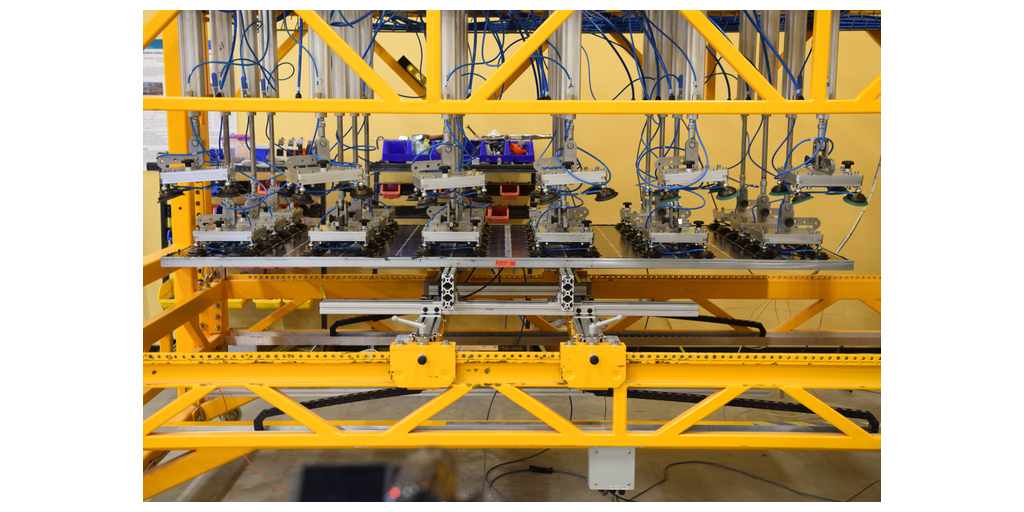Sign up for daily news updates from CleanTechnica on email. Or follow us on Google News!
One of Kenya’s oldest public transport operators, Kenya Bus Service Management Limited (KBS), is going electric! The company has evolved over the years as the Kenyan bus sector has gone through several transformations, surviving the different eras of Kenya’s public transport ecosystem, including the overall shift from the formal era to the informal paratransit-operator-dominated era which brought in second-hand low-capacity vehicles — and started to upstage formal operators, leading to the collapse of many bus companies.
KBS, which has been operating since 1928, recently took delivery of its first electric bus, the E9 Kubwa from BasiGo. This is the first of 25 buses to be delivered to KBS by the end of this year. The “E9 Kubwa” is a 36-seat electric bus custom designed for the Kenyan market. Kubwa means “Big” in Swahili, and in this case has been used (I assume) to indicate to the market that BasiGo now has an additional option of a bigger bus. The E9 Kubwa has a 210kWh battery coupled with a 130kW (250kW peak) electric motor.
KBS’s first electric bus will serve the CBD-Kibera, CBD-KNH, and CBD-Utawala routes. The E9 Kubwa is assembled in Thika, Kenya, in collaboration with Kenya Vehicle Manufacturers (KVM). BasiGo and KVM aim to manufacture over 1,000 electric buses in the next 3 years, creating over 300 new manufacturing jobs and an additional 300 jobs in the ecosystem of charging, maintenance, and financing required to support electric buses in operation. Through its Pay-As-You-Drive financing model, BasiGo has also announced a new lease option, enabling owners to adopt the electric bus for a much lower upfront cost. Each E9 Kubwa electric bus is expected to help Kenya reduce diesel consumption by 20,000 litres per year while also reducing CO2 emissions by 50 tonnes per year.
Savings of 20,000 litres of diesel per year per bus is a really big deal for a country like Kenya, which imports all of its petrol and diesel. Accelerating the adoption of these electric buses will go a long way in reducing pressure on demand for foreign currency through increased import substitution, as more and more buses will start to use energy from locally generated renewable sources such as geothermal, hydro, and wind, especially during off-peak overnight periods when Kenya has quite a lot of capacity to do so.
BasiGo says it is progressively increasing the contribution of local components as part of its local bus assembly program. Currently, components such as glass and interior seats are being sourced in Kenya. BasiGo already has a fleet of over 20 buses on the road in collaboration with several bus operators in Kenya. BasiGo plans to have over 100 buses on the road by the end of this year and over 1,000 electric buses by the end of 2026. I am really excited about the introduction of more electric buses in Kenya. Here is why all of this is a really big deal! Over the last few years, 6,370 buses have been sold in Kenya (from 2018 to 2022), at an average of 1,274 a year.
Illustration: The Impact of Introducing of 350 Electric Buses In A Year On Kenya’s Bus Sector

Let us look at the impact introducing 350 buses a year could have on the Kenyan annual bus sales market by comparing this number with some recent sales data. Introducing 350 electric buses a year and comparing this to the sales of ICE buses since 2018, we see that 350 would be about 5.5% of the number of buses sold from 2018 to 2022. 350 buses would be about 16% of all the buses sold in Kenya in 2022. This shows us how quickly the imminent introduction of all of these electric buses can have an enormous impact. The transition to electric is going to happen a whole lot faster than a lot of people think and in a lot more places around the world.
Images courtesy of BasiGo
Have a tip for CleanTechnica? Want to advertise? Want to suggest a guest for our CleanTech Talk podcast? Contact us here.
Latest CleanTechnica.TV Videos
CleanTechnica uses affiliate links. See our policy here.
CleanTechnica’s Comment Policy










